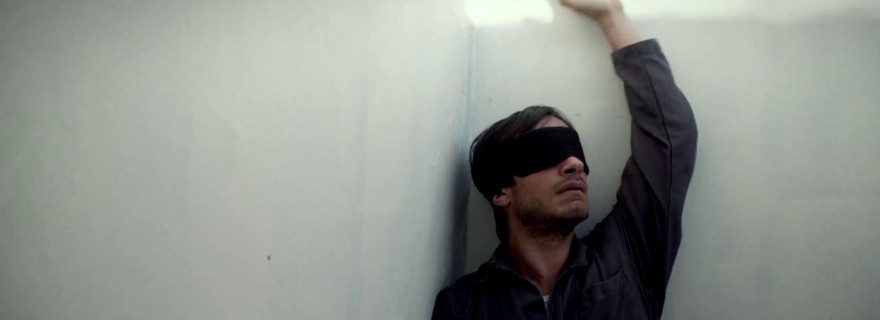'Rosewater'
Movie Rating:
3
‘Rosewater’ is a pretty strong directorial debut, but since it’s the directorial debut of ‘Daily Show’ host Jon Stewart it’s going to face a little extra scrutiny. Fair enough, anyone that big attempting to jump into the directing chair knows what comes with the territory. Still, if you can stop judging ‘Rosewater’ as “that Jon Stewart movie” long enough to just consider it a movie, you might be surprised by what an intelligent, warm, funny and provocative film it truly is.
‘Rosewater’ tells the true story of Maziar Bahari (Gael Garcia Bernal), an Iranian journalist living in Britain who covered Iran’s troublesome 2009 election for Newsweek. During the trip, he appeared in a segment for ‘The Daily Show’ in which correspondent Jason Jones interviewed him as the world’s worst spy. Later on, Bahari made friends with some Left-leaning Iranian citizens who were disgusted by the manipulated election results. He followed them to a protest that was unlawfully attacked, filmed the results, and sent the footage to the international media. Almost immediately, Bahari was arrested in held in Iran for 118 days. During that time, he was interrogated and tortured endlessly by a single government agent he knew only as Rosewater (Kim Bodnia) based on the cheap cologne he wore. The main evidence that the Iranian government used as proof of Bahari’s spying ways? That clip from ‘The Daily Show’.
It’s immediately clear why Jon Stewart was drawn to this subject matter, given his indirect involvement in the actual events. However, why he was suited to direct the material only becomes clear as the film goes on. At first, the movie is a very sincere depiction of Bahari’s story. The inequality within Iran is delicately explored and the interrogations are effectively depicted. The film wears its politics on its sleeve and has some prescient if not exactly groundbreaking points to make. Then something strange happens; the movie starts to become rather funny.
That’s not to say that Stewart is making light of the events or transforming them into pure slapstick. The humor arrives naturally. It starts when Bahari is arrested and his ‘Sopranos’ DVDs and ‘Tintin’ comics are labeled pornography as proof of his perverse corruption. It hits again when the ‘Daily Show’ clip is used as evidence of his espionage, but really takes over once Bahari realizes that his interrogator keeps bringing up sexual perversion due to his own repressed fascination. So, Bahari starts feeding him fictional sex stories to slow down the torture.
The actual story (and in turn the film) has an element of the absurd to it, the kind of thing that makes us laugh at tragedy as a coping mechanism. Stewart knows exactly how to highlight this humor without going too far, and also recognizes how Bahari clung to his own sense of humor in the midst of intense injustice in a way that we all do to cope with our own tragedies. It’s a universal theme in a very specific story that Stewart was right to pull out.
Now, I’m not suggesting that ‘Rosewater’ is a laugh riot by any stretch of the imagination. That might be the film’s heart, but the movie is more complicated than that. Stewart plays the interrogation and politics straight, and does so well. For the most part, the film is a two-hander battle of wits between Bahari and Rosewater, which the director executes with impressive dramatic intensity. Bernal and Bodnia are extraordinary. Bernal communicates every inch of his character’s suffering without ever stretching credibility, and Bodina admirably lends psychological depth to what could have easily been a cardboard villain. Stewart treats the film as a drama because that’s what the story deserves, and he creates a stirring one. The humor appears only when appropriate thematically to the narrative and the facts.
Is ‘Rosewater’ a perfect movie? Certainly not. Stewart fumbles frequently while trying to find his visual style. He downplays the physical torture Bahari endured in an unfortunate whitewash. The movie ultimately feels a bit slight given its reverent tone of cultural importance. It has many problems, most of which are common in a first directing effort.
Yet, despite any of these issues, Stewart has tapped into something interesting. He gives the story the respectful and thoughtful treatment it deserves while also stumbling into an intriguing theme about finding humor in the absurdity of tragedy. There are hints here that Stewart could be a strong filmmaker and that he’s already a rather good one. The trouble is that he’s already pretty great at his day job, so slipping out to be merely good elsewhere might not be worth his time. Still, an interesting directorial voice is emerging here that might offer Stewart a new career path whenever he inevitably gives up ‘The Daily Show’.



